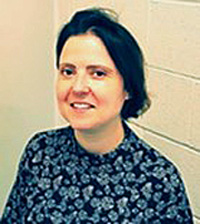Spotlight on the SEN Team in Brighton & Hove

Ever wondered what the SEN Team does and how they support families in Brighton & Hove?
 We spoke to the Head of the SEN Statutory Service, Rhianedd Hughes, to bring you the latest information about how Brighton & Hove’s SEN Team is working with local families.
We spoke to the Head of the SEN Statutory Service, Rhianedd Hughes, to bring you the latest information about how Brighton & Hove’s SEN Team is working with local families.
How many people are in the SEN Team in total?
“We have 28 staff who do lots of different things and work a range of hours.”
Can you tell us a bit more about the roles and how the service is delivered?
“We have three SEN casework teams: for primary, secondary and post-16. Each of these teams has a Manager, a Senior Casework Officer and a team of Casework Officers who each have a caseload of specific schools or colleges across the city. We also have Business Support Team who administrate the SEN service including monitoring our general SEN inbox.”
What does a Casework Officer (CWO) do?
“They manage the Education, Health and Care assessment process, liaising with families, professionals and education settings throughout. They also manage the Annual Review process for children and young people with existing EHC plans, attending reviews where necessary and updating the plan to reflect any changes required. The Senior Casework Officers also do a lot of multi-agency work with other education and health services such as Brighton and Hove Inclusion Support Service (BHISS) and Child Development and Disability Services at Seaside View.”
See the attached file for a fuller description of the Role of CWO in Brighton & Hove.
What is their workload like?
“We redesigned the service two years ago to try and increase capacity and reduce the team’s workload but there has been a huge growth in the number of EHCPs which has made that impossible. Brighton & Hove has 2,489 EHCPs this year – up 20% from last year – and that means each CWO has a caseload of about 230 children and young people. Despite this, we are proud that we managed to complete 81% of our EHC assessments on time this year – especially as the national average is 50%
How do they manage such huge caseloads?
“Great organisational skills and lots of experience! Most of the team come from a background of working in schools in SEN; some of them are parent carers or have lived experience of SEN and disability in their personal lives. The team are used to handling multiple referrals effectively and they have a database and Business Support Team that helps streamline processes too. For example, we have a new Annual Reviews Officer who is helping to make the administration of Annual Reviews more efficient. And our involvement in the Change Programme means we have two extra CWOs for a year which is helping with the workload.
The CWOs also do regular ‘surgeries’ with their managers, talking through issues and resolving difficulties.”
Tell us a bit more about you, Rhianedd. How did you come to the role?
“I joined Brighton & Hove City Council as the Head of SEN Statutory Service in Oct 2019 – just before the pandemic hit.
I’d worked in SEN in local authorities in London for 20 years before then but always kept my eye on roles in Brighton, as I had heard great things about the local authority, and I really wanted to live by the sea.
I chose this field because I am passionate about trying to improve support for children and young people with SEND. My brother is autistic and, growing up, I saw first-hand how vital it is to get the right support.”
What do you like about your job?
“Helping people, improving people’s lives. I love the variety of the role – there’s always something new – and you really can’t get bored working in SEN. I also love being a leader, having the ability to effect change but also to see my team doing well.
What are your biggest challenges?
“Demand obviously. The number of referrals means that families can wait longer than we would like for an assessment. And we are still dealing with the effects of the pandemic in terms of pressure on families and services.
The pace of change can also be frustrating. We have an SEN Strategy and a plan to deliver the new specialist SEN provision that we know families need, but it takes a long time to turn that plan into reality.
Our three biggest areas of need are autism, social, emotional and mental health and speech, language and communication difficulties and we are developing the services that some of these families need. It can feel very slow, and we share the frustration that some families feel.”
What are you hopeful about for the future?
“Our participation in the Change Programme is definitely a positive development. As one of the local authorities chosen to help test key developments in SEN, we are seeing early on how developing a consistent national framework will help families. For example, the proposed national template for EHC plans is much clearer and more accessible. And we were pleased to be successful in pushing for a one-page profile to be added to the template to give a space to capture more about each child or young person – their talents, skills and likes and dislikes, as well as their difficulties. This kind of person-centred focus gives a much more balanced understanding of a child or young person and makes it a less negative experience for them.
Having a consistent approach across the country is also going to be so much better, particularly if a family with an EHCP moves to a different area or for looked after children who move around.
I’m also really excited to see us developing new provision, although it’s taking time. Working with the NHS and partners like Amaze and PaCC to deliver new specialist SEN services is a really positive development that I’m sure will make a tangible difference to families.”



